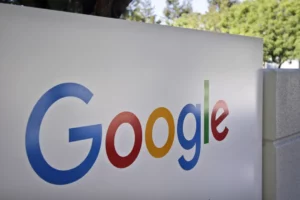Quantum computing has long been the stuff of science fiction—until now. In recent years, Google has emerged as a leader in this cutting-edge field, achieving milestones that once seemed unimaginable. From demonstrating quantum supremacy to unlocking new possibilities in cryptography and materials science, Google’s advances are reshaping the technological landscape. But what exactly are these breakthroughs, and how do they impact the world as we know it? Let’s explore the journey of Google’s quantum computing efforts and their implications for the future.
The Dawn of Quantum Computing
Quantum computing represents a paradigm shift in how we process information. Unlike classical computers, which rely on bits as the fundamental unit of data (either 0 or 1), quantum computers use qubits, which can exist in multiple states simultaneously thanks to the principles of superposition and entanglement. This property allows quantum machines to solve certain problems exponentially faster than classical counterparts.
Google’s foray into quantum computing began in earnest in 2013, when it partnered with D-Wave Systems to explore early quantum annealing techniques. However, it wasn’t until 2019 that Google made headlines with its landmark achievement: quantum supremacy. This milestone marked the first time a quantum computer performed a calculation that was demonstrably beyond the capabilities of any classical machine.
Quantum Supremacy: A Defining Moment
The term “quantum supremacy” refers to the point at which a quantum computer solves a problem that would take a classical computer an impractical amount of time to complete. In October 2019, Google’s Sycamore processor achieved this feat by performing a random circuit sampling task in just 200 seconds. According to Google’s calculations, the same task would have taken the world’s fastest supercomputer approximately 10,000 years to complete.
While skeptics questioned the validity of Google’s claim, subsequent studies confirmed the breakthrough. The experiment demonstrated that quantum systems could outperform classical algorithms in specific, carefully designed scenarios. This achievement validated the potential of quantum computing and ignited excitement across industries.

Beyond Supremacy: Real-World Applications
Quantum supremacy was a proof-of-concept, but the real promise of quantum computing lies in its practical applications. Google’s researchers are now exploring how quantum machines can tackle real-world challenges, from drug discovery to climate modeling. Here are some of the most promising areas:
1. Cryptography and Cybersecurity
One of the most anticipated applications of quantum computing is in cryptography. Quantum computers could potentially break widely used encryption protocols like RSA and ECC, rendering current security measures obsolete. However, they also offer a solution: quantum-resistant algorithms. Google has been at the forefront of developing post-quantum cryptographic methods, ensuring that future systems remain secure against quantum attacks.
2. Drug Discovery and Materials Science
Quantum computers excel at simulating molecular interactions, making them ideal for drug discovery and materials science. By modeling the behavior of atoms and molecules with unprecedented accuracy, quantum machines could accelerate the development of new drugs, catalysts, and sustainable materials. For example, researchers are using quantum simulations to optimize battery chemistry, paving the way for more efficient energy storage.
3. Optimization Problems
Many industries face complex optimization challenges, such as supply chain management, logistics, and financial modeling. Classical computers struggle to find optimal solutions for these problems, especially when dealing with large datasets. Quantum algorithms, such as the Quantum Approximate Optimization Algorithm (QAOA), offer the potential to solve these problems more efficiently, leading to cost savings and improved decision-making.
4. Climate Modeling and Environmental Science
Climate change poses one of the greatest challenges of our time, requiring sophisticated models to predict future trends and develop mitigation strategies. Quantum computers could enhance these models by processing vast amounts of data and simulating intricate environmental processes. This capability could lead to more accurate predictions and actionable insights for policymakers.
The Challenges of Quantum Computing
While the potential of quantum computing is immense, several hurdles remain before it becomes mainstream. One major challenge is error correction. Qubits are highly susceptible to decoherence and noise, causing errors that must be corrected to ensure reliable computation. Google has made significant strides in developing error-correcting codes, but perfect fault tolerance remains elusive.
Another obstacle is scalability. Current quantum processors are small, with only a few dozen qubits. Scaling up to thousands or millions of qubits while maintaining coherence and connectivity presents a daunting engineering challenge. Google’s efforts focus on building modular architectures that can scale efficiently.
The Future of Quantum Computing
Google’s breakthroughs have ignited a race among tech giants and research institutions to push the boundaries of quantum computing. Companies like IBM, Microsoft, and Amazon are investing heavily in quantum hardware and software, while startups are exploring niche applications. Governments are also getting involved, recognizing the strategic importance of quantum technology.
The impact of quantum computing extends beyond individual industries. It has the potential to transform entire ecosystems, from healthcare to finance to energy. As quantum machines become more powerful and accessible, they will unlock new frontiers in science and technology, driving innovation across disciplines.
Ethical Considerations and Responsible Development
With great power comes great responsibility. As quantum computing matures, ethical considerations must be addressed. Issues such as data privacy, algorithmic bias, and unintended consequences must be carefully managed to ensure that quantum technology benefits society as a whole.
Google has taken steps to promote responsible development through initiatives like the Quantum AI Lab, which fosters collaboration between academia, industry, and government. By engaging diverse stakeholders, Google aims to ensure that quantum computing evolves in a way that aligns with societal values and promotes equitable access.
Google’s quantum computing breakthroughs represent a monumental leap forward in the quest to harness the power of quantum mechanics. From demonstrating quantum supremacy to exploring practical applications in cryptography, materials science, and optimization, Google’s efforts have opened new avenues for technological progress. While challenges remain, the potential rewards are immense, promising to reshape industries and improve lives in ways we are only beginning to imagine.
As we stand on the cusp of a quantum future, one thing is clear: Google’s contributions will play a pivotal role in defining this transformative era. By pushing the boundaries of what’s possible and addressing the ethical dimensions of quantum technology, Google is paving the way for a brighter, more innovative world. The journey is just beginning, and the possibilities are boundless.
















Add Comment